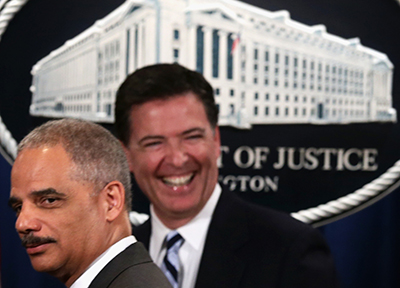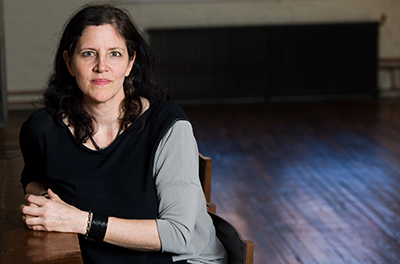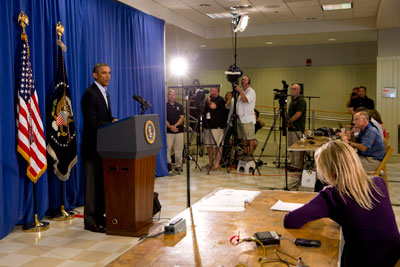Classifying media and encryption as a threat is danger to press freedom
The U.K. prides itself on its commitment to free expression, but the latest revelations of surveillance of journalists and calls by Britain’s Prime Minister, David Cameron, to ban secure messaging belie the country’s drift toward a more restrictive environment for the press. The revelations further underscore the threat surveillance by Western democracies poses to journalism,…
Cyber security bill threatens media freedom in Thailand
Bangkok, January 20, 2015–The Committee to Protect Journalists calls on Thailand’s military-appointed legislature to scrap proposed legislation that would allow for mass surveillance of online activities and platforms. The Cyber Security Bill was approved this month by Prime Minister Prayuth Chan-ocha’s Cabinet and is pending in the National Legislative Assembly.

CPJ welcomes Risen decision, calls on Holder to ensure journalists are not forced to reveal sources
New York, January 13, 2015–The Committee to Protect Journalists welcomes the decision on Monday by the United States Department of Justice to withdraw its subpoena of New York Times reporter James Risen and calls on the Department of Justice to enact guarantees that journalists will not face similar legal action related to confidential sources in…
CPJ welcomes Facebook move to enable access via Tor hidden service
San Francisco, November 3, 2014 – The Committee to Protect Journalists welcomes Facebook’s move to enable access via a Tor hidden service, which came into effect on Friday. The step protects journalists and other users who are at risk of surveillance, censorship, or online attack.

How resistance to encryption jeopardizes journalism
Earlier today, the Brookings Institution hosted a discussion with FBI Director James B. Comey, who made the case that steps taken by Apple and Google to protect user privacy were damaging the FBI’s efforts to fight crime and safeguard U.S. national security. The discussion was due to take place hours before Apple launched its latest…
Simple steps to protect journalists and sources from eavesdroppers
Journalists are among those most likely to face technical attempts at attack and interception. Reporting is based on discussions with sources who may want to remain out of the limelight, and news sites attract extensive readership, making them a desirable target for potential attackers. But there are simple steps to protect against the most common…

Eight days in Hong Kong: Laura Poitras on documenting Snowden for ‘Citizenfour’
The world premiere of Laura Poitras’s highly anticipated documentary “CITIZENFOUR” at the New York Film Festival occurred with the appropriate amount of intrigue for a film about last year’s dramatic revelations of the National Security Agency’s surveillance programs. The press and premiere screenings were clocked to begin simultaneously on Friday so no breaking news could…

One year after CPJ’s US report, little has changed between Obama and press
After a summer plagued by war and disease abroad and partisan fighting at home, it was not hard to fathom why President Barack Obama would yearn for a retreat. But from which of the mounting crises did the president hope to escape: Ukraine? Islamic State? Ebola? The Tea Party? None of the above, according to…
CPJ urges US to mitigate threats to journalism, newsgathering
Dear President Obama: The Committee to Protect Journalists, an independent, nonprofit organization that promotes press freedom worldwide, is writing to express its concern about the effects of intelligence and law enforcement activities undertaken by agencies, over which your administration has oversight, on the free flow of news and other information in the public interest.
No press freedom without Internet freedom
Four years ago, when CPJ launched its Internet Advocacy program, we were met with lots of encouragement, but also some skepticism. “Why do you need a program to defend the Internet?” one supporter asked. “You don’t have a special program to defend television, or radio, or newspapers.” But the Internet is different. Increasingly, when it…